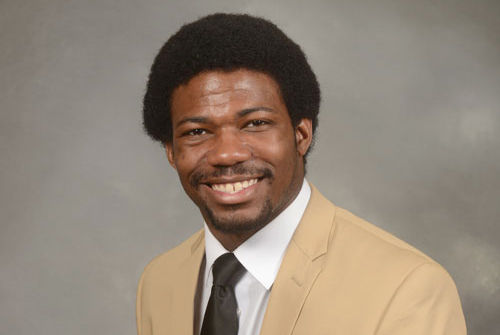Opinion: Do you care?

Marvin Logan is a senior Pan-African studies major and a columnist for The Kent Stater. Contact him at [email protected].
December 1, 2014
Within the past few weeks, we have been challenged. Morality has been the topic at hand. We seem to be a nation that is as divided as ever. With so much at stake, so many seem to have not even registered a blip on their radar. It begs to ask the question, do you care? Is this an issue that speaks to you? Why? Why not? Is it ok that you care or don’t care?
These are hard and crucial times in our time as a people. Obviously, we have a new race problem here in America because racism ended a long time ago. Dr. Martin Luther King Jr. completely irradiated the issue once his dream was posthumously completed. In 2008, the race problem ended when Barack Hussein Obama was elected president. There is, however, one issue with this theory: It is completely untrue.
Truthfully, that mission was never completed, and may never be completed. Many Americans do believe that racism isn’t an issue or that it is an issue perpetrated by underrepresented groups. One may ask, why is that an issue? It is actually quite simple: We don’t have a ton of people who are racist and think their race is better than any other. What we do have is a country filled with systems and practices that are inherently biased.
Racial bias is something consistently shown by many social scientists. You can not overtly think something of someone but still have the presence of negative connotations provided by mass media consumption. Therefore, you may just pop up and think, “Why is everyone so mad?” or “I don’t see color.” Color-blindness is actually more harmful in many ways than you may think. For many, their skin color is a part of their heritage, ethnicity and identity. To deny that person their heritage is to deny a part of them. Racial pride and celebration don’t necessarily qualify as racism.
So why the tangent on bias? The presence of bias has created the thought process that because the actions of one may be different than the majority, racism must not be a problem because you personally don’t practice it. With that comes the privilege of not having to recognize it. With that, this issue may not hit home with you in Ferguson, or Dayton, or Cleveland, or anywhere else for that matter. You may just see an innocent person, or person who is not so innocent, be given less of a chance to live simply because of the color of their skin. That ultimately continues to add to the issue. You, too, can play a part in the pursuit of justice. By learning to see your bias or the bias of others, you can learn ways you can help. Instead, many hear the conversation on race and take it personally as if it is an indictment on their character. It simply means there were some things going on that you didn’t know, and now you can try to fix it.
So in the end, do you care? Do you care that another human being walks in fear of those who swore to protect and serve? Do you care that someone might have less of a chance at a job, simply because his name is indicative of a culture that isn’t dominant in our country? Do you care that someone rolls out of bed with a slightly lower edge because of what they look like? Your peers care. Do you?











